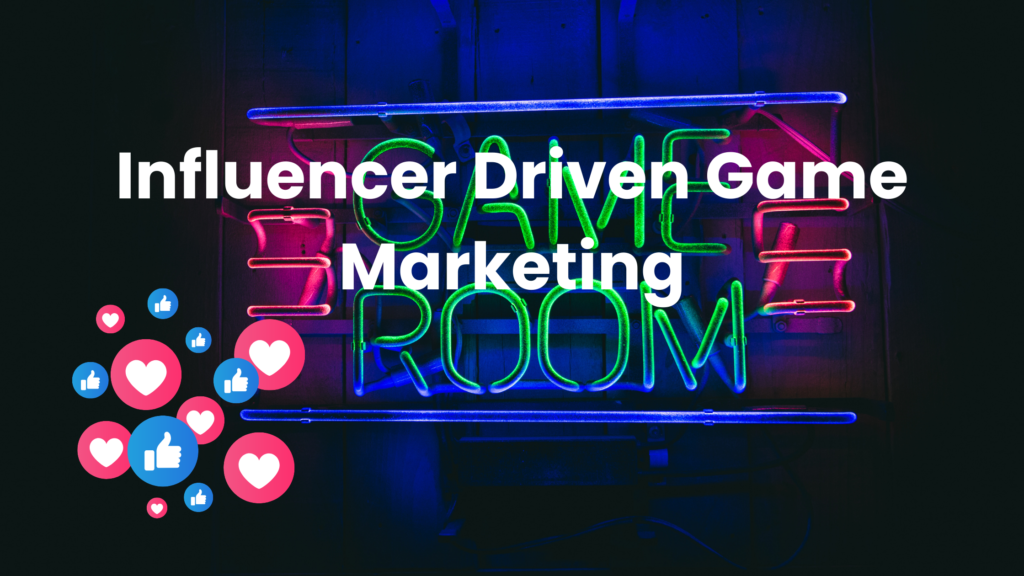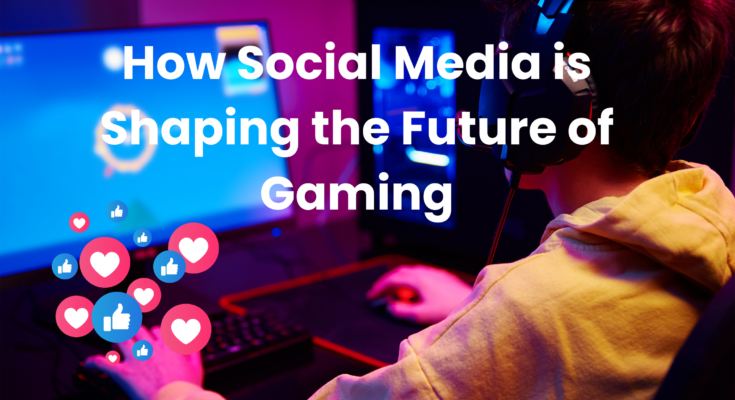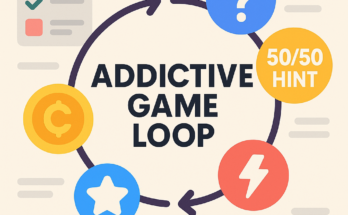Introduction
Social media has become an integral part of modern life, influencing industries across the board—including gaming. Once driven primarily by traditional marketing and word-of-mouth, the gaming industry is now experiencing a significant shift thanks to the power of social media platforms like YouTube, Twitch, Twitter, and TikTok. These platforms help developers market their games and enable community engagement, competitive gaming, and even the rise of new gaming genres. In this article, we’ll explore how social media is shaping the future of gaming and the key trends defining this transformation.
The Rise of Gaming Influencers and Content Creators
One of social media’s most significant impacts on gaming is the rise of influencers and content creators. These individuals play a major role in promoting games, shaping gaming culture, and providing entertainment to millions of followers.
1. Game Reviews and Playthroughs
Content creators on YouTube and Twitch produce in-depth game reviews, walkthroughs, and Let’s Play videos that help audiences decide which games to play. Unlike traditional advertising, these reviews are often seen as more authentic, as they showcase genuine player reactions and experiences.
2. Livestreaming and Community Engagement
Platforms like Twitch and Facebook Gaming allow players to stream their gameplay in real-time. This fosters a sense of community as viewers can interact with streamers via live chat, participate in giveaways, and join gaming discussions.
3. Influencer-Driven Game Marketing

Many game developers and publishers collaborate with popular gaming influencers to market their games. By leveraging the reach and credibility of influencers, developers can generate organic hype and attract a loyal player base.
Social Media as a Marketing Powerhouse for Games
Gone are the days when game promotions were limited to TV ads and magazine features. Social media has revolutionized game marketing, making it more dynamic and accessible.
1. Viral Game Trends
Social media platforms play a crucial role in making games go viral. Trends such as challenges, memes, and user-generated content contribute to the rapid spread of certain games. Examples include the viral success of Among Us and Fall Guys, which gained popularity due to widespread exposure on TikTok and YouTube.
2. Targeted Advertising and Personalized Recommendations
Platforms like Facebook and Instagram use advanced algorithms to target potential gamers with personalized ads based on their interests. This ensures that game promotions reach the right audience, increasing engagement and conversion rates.
3. Interactive Campaigns and Community Challenges
Developers often launch interactive campaigns, such as in-game events and social media challenges, to boost engagement. Players participate in these events, share their experiences, and encourage others to join, leading to increased visibility and downloads.
The Impact of Social Media on Game Development
Social media is not just a tool for marketing—it also influences how games are developed and refined.
1. Community Feedback and Player-Driven Development
Developers now rely on social media to gather feedback from players. Platforms like Reddit, Twitter, and Discord allow gaming communities to voice their opinions, suggest improvements, and report bugs. This real-time feedback loop helps developers fine-tune their games based on player preferences.
2. Crowdsourcing Ideas and Beta Testing
Many indie developers use social media to test early versions of their games and get direct feedback from the community. Beta testing programs, open betas, and early access releases help developers identify issues and implement necessary changes before the full launch.
3. The Rise of User-Generated Content
Games like Minecraft and Roblox thrive on user-generated content, where players create and share custom maps, skins, and mods. Social media platforms enable players to showcase their creations, inspiring others to participate and contribute to the game’s ecosystem.
Competitive Gaming and Esports Expansion
Social media has played a critical role in the growth of esports, transforming competitive gaming into a global phenomenon.
1. Live Tournament Streaming
Platforms like Twitch and YouTube Gaming have made it easier for fans to watch esports tournaments in real-time. Games like League of Legends, Fortnite, and Call of Duty attract millions of viewers, making esports one of the fastest-growing entertainment sectors.
2. Player Sponsorships and Brand Collaborations
Esports players and teams gain sponsorships and brand deals through their social media presence. Companies partner with professional gamers to promote gaming gear, energy drinks, and even mainstream products.
3. Fan Engagement and Exclusive Content
Teams and players use social media to engage with fans, share behind-the-scenes content, and provide updates on upcoming matches. This constant engagement helps build a dedicated fan base and strengthens the connection between players and their audience.
The Future of Social Media and Gaming Integration
As technology continues to advance, social media and gaming are becoming increasingly intertwined. Here are some future trends to watch out for:
1. The Metaverse and Virtual Social Gaming
With the rise of the metaverse, social media and gaming will merge into fully immersive digital experiences. Platforms like VRChat and Horizon Worlds already demonstrate how social interactions and gaming can coexist in virtual environments.
2. AI and Personalized Gaming Experiences
Artificial intelligence (AI) is being integrated into social media and gaming, offering personalized recommendations, dynamic game content, and AI-driven companions that enhance the overall gaming experience.
3. Blockchain and NFT Gaming
Blockchain technology is creating new opportunities for social gaming, enabling players to buy, sell, and trade in-game assets using NFTs (non-fungible tokens). Social media will play a key role in promoting these digital assets and connecting gaming communities.
Conclusion
Social media has undeniably transformed the gaming industry, influencing game marketing, development, esports, and community engagement. As platforms continue to evolve, their role in shaping gaming experiences will only grow stronger. Whether through viral trends, influencer marketing, or real-time community feedback, social media is the driving force behind the future of gaming.
As a gamer, how do you think social media has impacted your gaming experience? Let us know in the comments below!
Read more on our other topics which consist of these great articles How Game Developers Make Money: Ads vs. In-App Purchases



